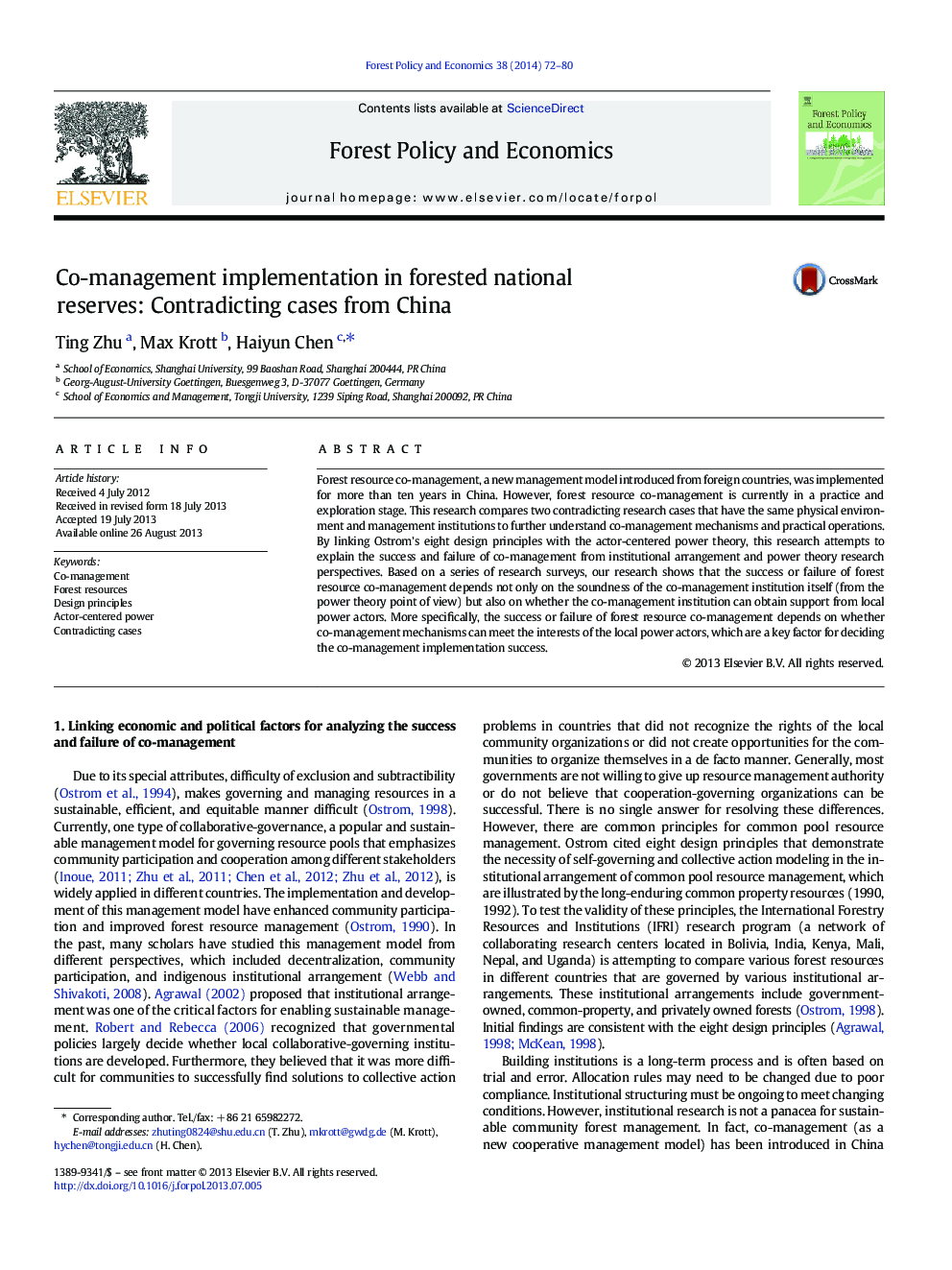| Article ID | Journal | Published Year | Pages | File Type |
|---|---|---|---|---|
| 6545015 | Forest Policy and Economics | 2014 | 9 Pages |
Abstract
Forest resource co-management, a new management model introduced from foreign countries, was implemented for more than ten years in China. However, forest resource co-management is currently in a practice and exploration stage. This research compares two contradicting research cases that have the same physical environment and management institutions to further understand co-management mechanisms and practical operations. By linking Ostrom's eight design principles with the actor-centered power theory, this research attempts to explain the success and failure of co-management from institutional arrangement and power theory research perspectives. Based on a series of research surveys, our research shows that the success or failure of forest resource co-management depends not only on the soundness of the co-management institution itself (from the power theory point of view) but also on whether the co-management institution can obtain support from local power actors. More specifically, the success or failure of forest resource co-management depends on whether co-management mechanisms can meet the interests of the local power actors, which are a key factor for deciding the co-management implementation success.
Related Topics
Life Sciences
Agricultural and Biological Sciences
Forestry
Authors
Ting Zhu, Max Krott, Haiyun Chen,
